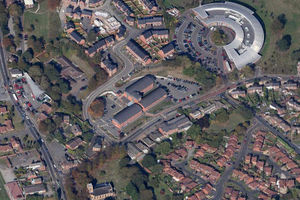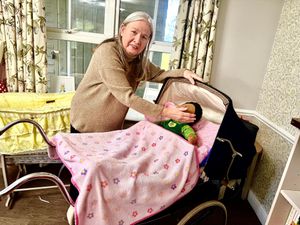Want to live longer? Then move to Dudley
Just a few miles apart, the chances of living a longer life are reduced depending on which area a baby is born in.

Latest figures show boys born today in some parts of the Black Country can expect to live up to 2.6 years less than the national average, although health bosses said things were getting better.
And yet in Staffordshire they can expect to make it to 79, a little longer than the standard for England.
Dudley people are broadly in line with the national average, although some estimates suggest someone born in Amblecote could expect to live until 91.8.
But even that is dwarfed by the life expectancy of men in affluent Kensington in London, who can expect to live until the age of 97.7. Boys born today in Tranmere in the Wirral only have a life expectancy of 66.5.
That is the same life expectancy as a British man had in 1951 and is the same as people in developing countries like Pakistan and Bolivia.
The national average for England is 78.9 for a male born today and 82.9 for a female, according to Public Health England. Boys born in Sandwell will have an average life expectancy today of 76.3, 2.6 years less than average, and girls of 81.4, which is 1.5 years less.
In Walsall and Wolverhampton, males will have an average life expectancy of 77.3, which is 1.6 years less than average, while girls in Walsall will do better, living on average to 82.3. Girls in Wolverhampton can expect an average life of 81.3 years.
In Dudley it is 78.7 years on average for males and 82.8 years for females, both just slightly less than the average. Staffordshire women will live to an average of 82.9 years, the same as the national figure.

Heart disease is the biggest cause of death with 702 men and 484 women in Sandwell and 555 men and 389 women in Wolverhampton between 2009 and 2011. In Dudley it was 665 men and 470 women, while in Walsall there were 656 men and 430 women.
The breakdown of figures for Staffordshire was not available because the county is in line with the national average.
While the figures show the averages for a local authority area, there are big differences even within borders. The poorer the area, the more likely people are to die younger. News that Amblecote's life expectancy is apparently so good came as a surprise to some in the area.
Councillor Christine Perks, who represents Amblecote said: "It is a more affluent area – but it's not as affluent as somewhere like Pedmore in Stourbridge, which I would have expected to have a higher life expectancy." A postcode lottery of life expectancy in Wolverhampton was revealed last year with men in Bilston living seven years less than those seven miles away in Tettenhall.
Men in Bilston East are living to an average of 72.8 years, while those in Tettenhall Wightwick could live to about 80.16 years. For women, life expectancy is 82.76 in Tettenhall Wightwick compared with 78.78 in Bilston East.
Professor John Newton, chief knowledge officer at Public Health England said: "Life expectancy continues to increase in England – from 2000 to 2012 it rose by 3.2 years for males and 2.4 years for females.
"However, despite this welcome overall increase profound inequalities in life expectancy persist across the country, between men and women and between the most and least deprived areas.
"The evidence is clear – a person's likelihood of dying early varies widely between areas due to differences in risk factors such as being overweight, lack of exercise, excessive alcohol consumption and smoking, but these factors are also closely linked to economic deprivation and other aspects of the way we live that may be beyond an individual's control."
"If we are to change the current pattern of early mortality many different public agencies need to work together with industry and local people to create healthy communities and healthy places to live across the whole country." Ros Jervis, Wolverhampton's director for public health, today said the city council still needed to 'validate' the figures.
But she said: "It is important to stress that general health is improving in Wolverhampton.
"As well as working hard to improve people's life expectancy in Wolverhampton, we are also determined that people are able to remain healthy for longer – and so live longer without developing life-limiting conditions such as type two diabetes and coronary heart disease."We are doing a lot of preventative work to improve people's health in Wolverhampton, including educating people about healthy lifestyles, diet and the importance of physical exercise and running smoking cessation classes.all of which should help people live longer without developing the sort of long-term health conditions which can have a major impact on quality of life."





